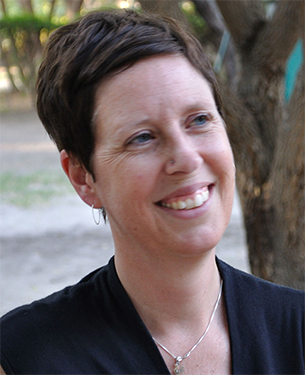
In her message to the community, Faculty of Environmental and Urban Change (EUC) Dean, Alice Hovorka writes that addressing the climate crisis is not a matter of “now or never” but rather “now and forever.” It is within this context that York University’s EUC has been established as a call to action to respond to the pressing challenges facing people and the planet.

Greetings from the Faculty of Environmental and Urban Change (EUC) at York University.
April 22 is Earth Day and it is important to note two key reports published by the Intergovernmental Panel on Climate Change (IPCC) in the last few months.
First, Working Group II’s Climate Change 2022: Impacts, Adaptation and Vulnerability assesses the impacts of climate change on ecosystems, biodiversity and human communities while reviewing vulnerabilities and the capacities of nature and society to adapt to climate change. The report’s main message is clear: everywhere is affected with no inhabited region of the planet escaping the dire impacts from rising temperatures and increasingly extreme weather.
Second, Working Group III’s Climate Change 2022: Mitigation of Climate Change assesses global pledges and progress made thus far in relation to emission reductions and mitigation efforts. The report’s main message is grim: it is now or never if the world is to stave off climate disaster.
I encourage all of us within the York University community to read these reports and digest the insights offered on the state of the planet and approaches needed to set us on a more just and sustainable path.
Moreover, I encourage us to embrace the idea that addressing the climate crisis is not a matter of “now or never” but rather “now and forever.” We must fundamentally rethink our relationship with the environment upon which we depend and choose individual and institutional actions on its behalf.
It is within this context that York University’s EUC has been established as a call to action to respond to the pressing challenges facing people and the planet. Our efforts focus on producing and mobilizing knowledge for a just and sustainable world.
This month’s “Innovatus” highlights some of EUC’s core capstone experiences that are fostering environmental literacy and environmental action in students interested in and committed to making a positive change.
Professor P.E. Perkins’ Climate Justice Field Course (ENVS 4350) will draw students directly into the Working Group III Report – for which Perkins is lead author of Chapter 6 – emphasizing participatory approaches as fundamental to mitigating climate change. Professors Steven Tufts and Rick Bello’s Bruce Peninsula Field Course (GEOG 4520/4521) emphasizes the importance of local contexts and human-environment interactions as the sites of understanding and change. The Cross-Campus Capstone Course (C4) emphasizes multi-disciplinary, multi-sectoral teamwork approaches to identifying and addressing environmental issues brought to the students by community members and organizations.
These EUC capstone experiences serve as the culmination of our undergraduate programs, offering students opportunities to reflect on their years of study and apply their acquired knowledges, skills and values first-hand. It also offers an opportunity for students to look forward to building upon them for the future.
York students are eager to make positive change and make a difference in the world – EUC empowers students as champions of justice and sustainability through capstone experiences facilitating environmental literacy and action. I invite you to continue reading this edition to learn more about the capstone experiences offered at EUC. Many thanks to all EUC instructors, our staff, and the entire community for coming together to shape a more just and sustainable world.
